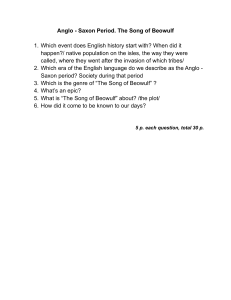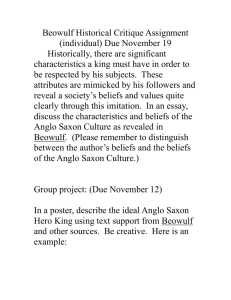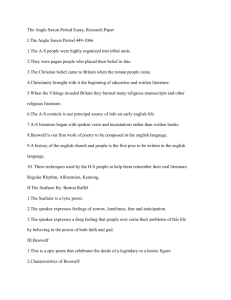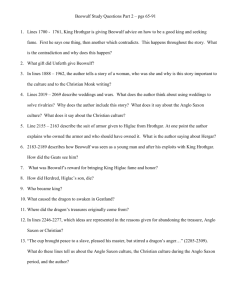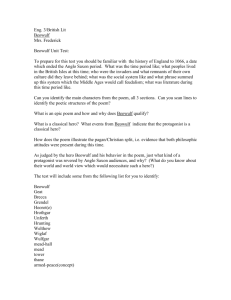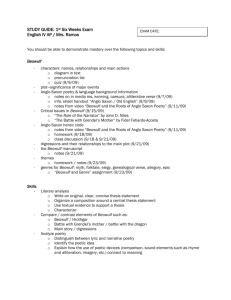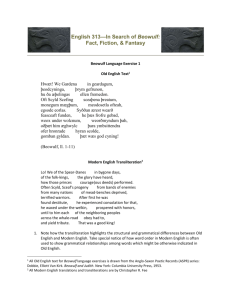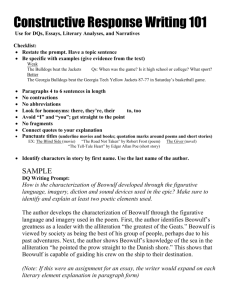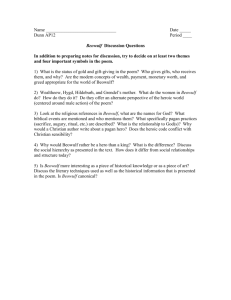The wife`s lament - Misterambrose.com
advertisement
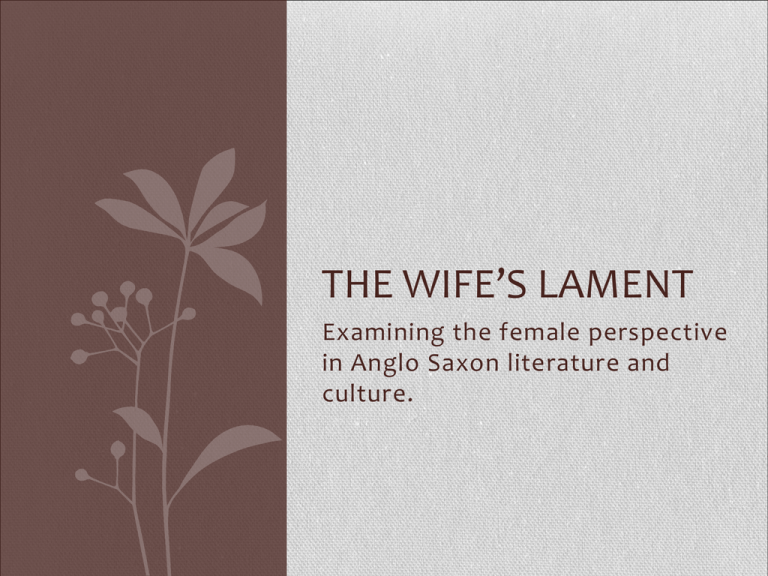
THE WIFE’S LAMENT Examining the female perspective in Anglo Saxon literature and culture. Warm up Writing Prompt • “Men grow up expecting to be the hero of their own story. Women grow up expecting to be the supporting actress in somebody else's. As a kid…that was always the narrative injustice that upset me more than anything else…Lady hobbits didn't bring the ring to Mordor. They stayed at home in the shire. ”- Laurie Penny, I was a Manic Pixie Dream Girl • What are some examples of female heroes? What do they have in common? • What does the author mean by the term “narrative injustice”? • How does this quote make you feel? Do you agree or disagree? Why? Implications for Reading Beowulf Get into the habit of interrogating a text. Start by asking: • Whose story is this? • What voices are missing or purposely ignored in this account? • Are certain groups marginalized within the text? • How does the author choose to write about these groups? • What are the author’s goals or motivations? Background on the Text • Like Beowulf, “The Wife’s Lament” is written in Old English and the author is unknown. • From an anthology of Anglo-Saxon poetry called The Exeter Book, written prior to 1072 A.D. • Some feel that the poem is an "elegy" or lament for things and/or persons lost, often lost to death. Eavan Boland reads her translation • http://poemsoutloud.net/audio/archive/boland_reads_the_wifes_la ment/ Homework • In many canonical texts like Beowulf, we see female characters primarily functioning as mothers, wives, daughters to male protagonists, identified solely by their relationship to men. For homework tonight, I’d like you to rewrite a scene from Beowulf in first person narration from the female perspective. Feel free to create a new character but try to stick to plot of the poem. Think about the idea of “writing back” to the text and giving a voice to the women during the time whose stories and experiences did not feature prominently in the Anglo Saxon culture.

